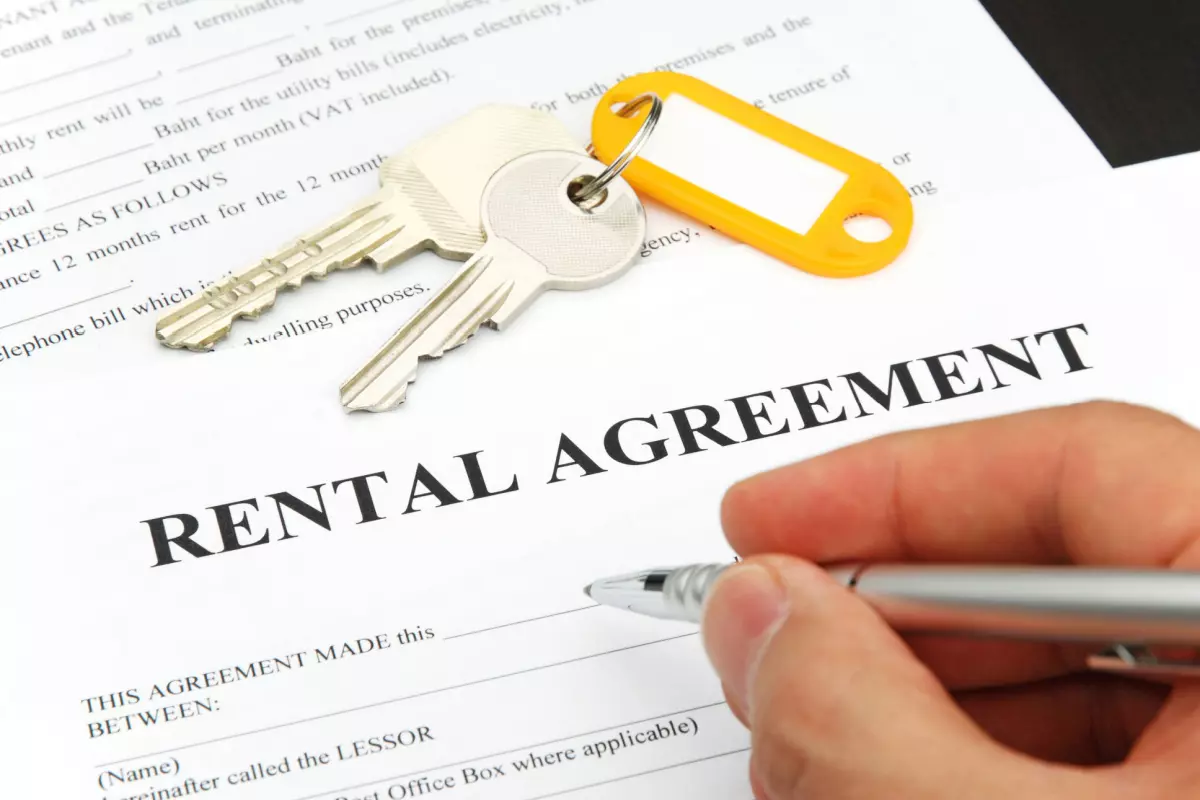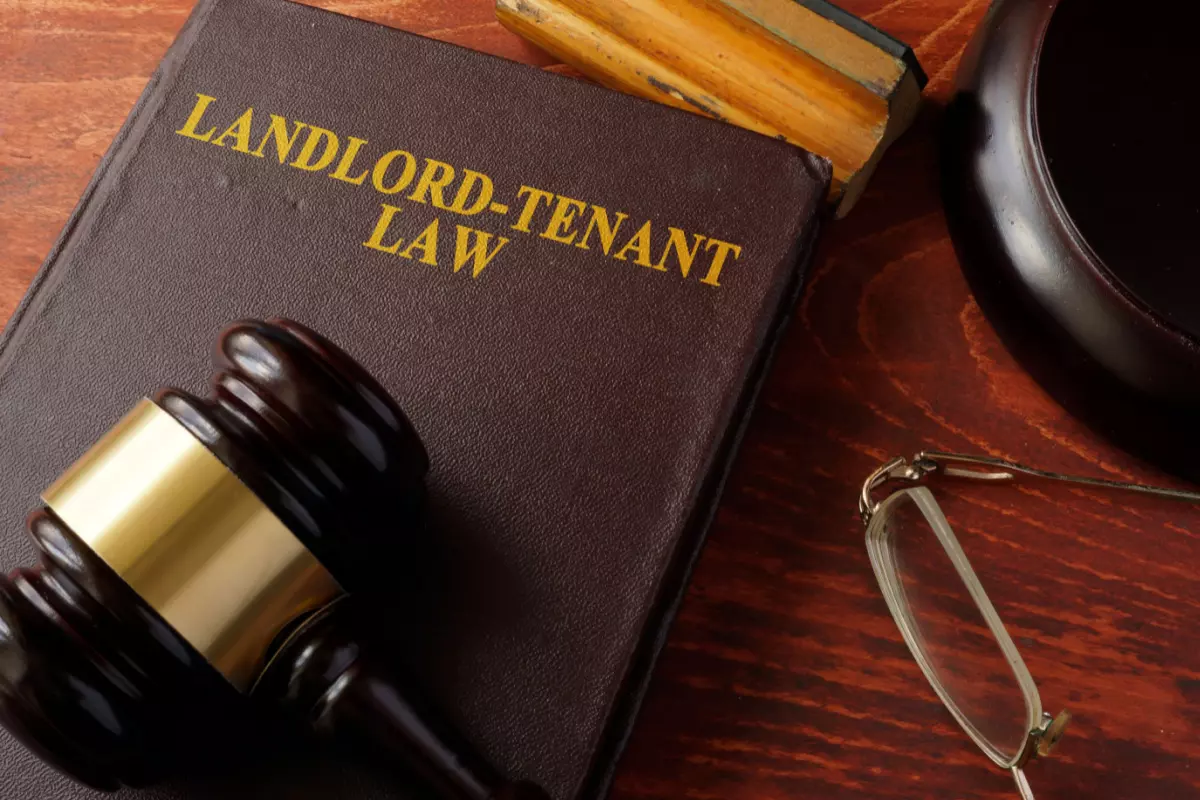How to Break a Residential Lease Legally
Renting isn’t always blissful. Tenants may encounter unpleasant rental properties, such as uninhabitable units or harassment, that require them to terminate their lease early.
But how to break a lease legally, and is it possible? In certain situations, the answer is yes, and knowing the intricacies of how to get out of a lease legally will ensure you’re well-prepared. If you need to relocate or change living arrangements in the future, this article delves into the potential legal grounds tenants may have for breaking leases, potential penalties, and effects on rental history.
Disclaimer: This article provides general legal information regarding residential leases. For advice specific to your situation, consult with a qualified legal professional. The information presented here should not be construed as legal advice or a guarantee.
Legal Reasons to Break Lease
Finding oneself in a situation where breaking a lease becomes necessary can be challenging and overwhelming. Whether due to unforeseen circumstances or changing needs, tenants may seek ways to terminate their lease agreement. Here is an overview of potential legal reasons to break a lease.
Property Is in Violation of Habitability Standards
When renting an apartment, tenants have the right to a habitable living environment that meets certain safety, cleanliness, and functionality standards. Unfortunately, there are instances where rented properties fail to meet these habitability standards, posing significant challenges for tenants.
If you find yourself in a situation where your apartment violates habitability standards, it may be possible to get out of an apartment lease early.

A violation of habitability standards refers to conditions within an apartment that make it unsafe or unsuitable for living. These violations can encompass a wide range of issues, including the following:
- Insufficient Access to Water: If your rented apartment experiences frequent water shutoffs, plumbing issues, contamination, or lack of hot water, it may justify breaking your lease early wthout paying.
- Lack of Provided Trash Receptacles: It is reasonable to expect that your landlord will supply proper trash bins for garbage disposal. If your rented unit lacks adequate trash disposal areas or the landlord consistently fails to provide a suitable system for garbage disposal, it may be a legal reason to break a lease.
- Neglected Cleanliness of Common Areas: Landlords are obligated to maintain cleanliness in shared spaces. If common areas are consistently neglected and not cleaned properly, it could be a valid reason to pursue early lease termination.
- Necessary Repairs: Landlords are responsible for addressing necessary repairs that affect the apartment’s habitability. Examples include heating system malfunctions, leaky roofs, plumbing issues, and electrical problems that pose safety hazards.
- Health and Safety Code Violations: Landlords must ensure their apartments meet health and safety standards. Violations can include a lack of fire safety measures, the presence of mold or mildew, structural issues, poor ventilation, pest infestations, exposed wiring, or faulty electrical systems.
Experiencing habitability issues does not automatically authorize tenants to break their leases. Tenants should first notify the landlord or property management about the problems and allow them the opportunity to address the issues.
If the issues are not resolved within a reasonable timeframe, the tenant may be able to legally break their lease.
Landlord Harassment
Instances of landlord harassment can create a hostile or uncomfortable living environment for tenants in rental properties. Landlord harassment refers to actions or behaviors by a landlord that are aimed at mistreating tenants and can include unwarranted intrusions, verbal abuse, withholding services, or engaging in retaliatory actions.

Some common forms of landlord harassment include:
- Unauthorized Entry: Landlords entering a tenant’s home without proper notice or repeatedly entering without permission can be considered harassment.
- Constructive Eviction: Landlords engaging in actions such as removing windows or doors, turning off utilities, or changing locks without tenant consent can be seen as constructive eviction and qualify as harassment.
- Neglecting Repairs and Maintenance: Landlords are responsible for addressing necessary repairs and maintaining the property to ensure habitability. Intentionally refusing or delaying repairs can be regarded as harassment.
- Discrimination: Landlords must not discriminate against tenants based on protected characteristics such as race, religion, national origin, or gender. Engaging in discriminatory behavior constitutes harassment.
To substantiate claims of landlord harassment, tenants should keep written records of incidents and, if possible, gather evidence such as photos. It is worth noting that landlords may present their own evidence to counter the claims.
If tenants need to terminate a lease due to landlord harassment, they may need legal intervention. This may involve filing a complaint with the appropriate court and presenting evidence to support the claim of harassment. If the court determines that harassment has occurred, the lease may be legally terminated.
Tenant Is Active Duty Military
Active-duty military members enjoy specific rights and protections under the Servicemembers Civil Relief Act (SCRA) to ensure their housing needs are met during their service. These protections include the ability to terminate a lease early or adjust rent in case of military-related reasons such as permanent change of station (PCS) orders or deployment.
Military members may be required to provide proof or documentation, such as official military orders, to invoke their rights under the SCRA.

In addition to lease termination and rent adjustments, the SCRA offers additional safeguards, such as protection against eviction for nonpayment of rent while on active duty. It is advisable for active-duty military members seeking to break their lease under the SCRA to seek legal advice from an attorney or a legal assistance office familiar with military and tenant law.
Renter Is a Survivor of Domestic Violence
Many jurisdictions have enacted laws that offer specific protections for survivors of domestic violence. These laws typically allow survivors to terminate their lease early without facing penalties or the eviction process.
Such provisions aim to ensure that survivors have the freedom to seek safety and create distance from their abuser without being tied to a lease agreement that may pose a threat to their well-being.
Here are a few steps typically advised:
- Document Domestic Violence: Keep records of incidents, including police reports, restraining orders, medical records, or any other relevant documentation that demonstrates the situation.
- Notify Your Landlord: Inform your landlord in writing about the domestic violence and your intent to terminate the lease early based on the applicable laws in your jurisdiction. Provide them with the necessary supporting documentation, such as a copy of the police report or restraining order, if required.
- Understand Your Local Laws: Familiarize yourself with the tenant protections and laws in your area that specifically address domestic violence. Research your rights and the available legal options to ensure you are well-informed.
- Seek Legal Assistance: Consult with an attorney or a local domestic violence support organization to understand your rights and navigate the process of breaking your lease in a safe and legally appropriate manner. They can provide guidance tailored to your situation and help you explore available resources and support services.
What Happens When a Renter Breaks a Lease Illegally?
When a renter breaks a lease illegally, they terminate the lease agreement without following the proper procedures or meeting the contractual obligations. This can occur by abruptly moving out without providing notice.
Breaking a lease illegally can lead to legal action, financial penalties, and damage to the renter’s credit. The consequences vary but commonly include lawsuits, owed rent or fees, and negative impact on credit history.
Final Thoughts
When figuring out how to break a lease legally, tenants should know their rights and the legal reasons that may justify this termination. While each situation is unique, documenting violations, seeking legal advice, and understanding local regulations are all steps to consider. Remember to approach the process cautiously and consult a qualified professional.
FAQ on How to Break a Lease Legally
How Does Breaking a Lease Affect Rental History?
Breaking a lease negatively affects rental history, making it harder to secure future rentals. It may result in limited options, higher deposits, or stricter requirements from landlords due to concerns about reliability.
To mitigate the negative impact of breaking a lease on rental history and improve future rental prospects, renters can:
- Explain the circumstances
- Provide references
- Offer to pay an additional security deposit
- Seek a co-signer or guarantor
- Build a positive rental history
The impact can vary but tends to diminish over time as a more positive rental track record is established.
What Is the Penalty for Breaking a Rental Lease?
When a renter breaks a rental lease, the penalties and consequences can vary depending on the lease agreement terms, local laws, and federal regulations. Here are some common penalties that renters may encounter:
- Financial Obligations: Breaking a lease typically involves financial consequences. This may include owing rent for the remaining lease term or a portion of it. Landlords may also charge additional fees, such as early termination fees.
- Legal Action: Landlords can pursue legal action against a tenant who breaks a lease. This can result in the tenant being sued for damages, including unpaid rent and any expenses incurred by the landlord as a consequence of breaking a lease.
- Credit History: Breaking a lease and failing to fulfill the financial obligations can negatively affect the renter’s credit history. This can make securing future housing or obtaining loans, credit cards, or other financial services more challenging.
Table of Contents
- Legal Reasons to Break Lease
- Property Is in Violation of Habitability Standards
- Landlord Harassment
- Tenant Is Active Duty Military
- Renter Is a Survivor of Domestic Violence
- What Happens When a Renter Breaks a Lease Illegally?
- Final Thoughts
- FAQ on How to Break a Lease Legally
- How Does Breaking a Lease Affect Rental History?
- What Is the Penalty for Breaking a Rental Lease?